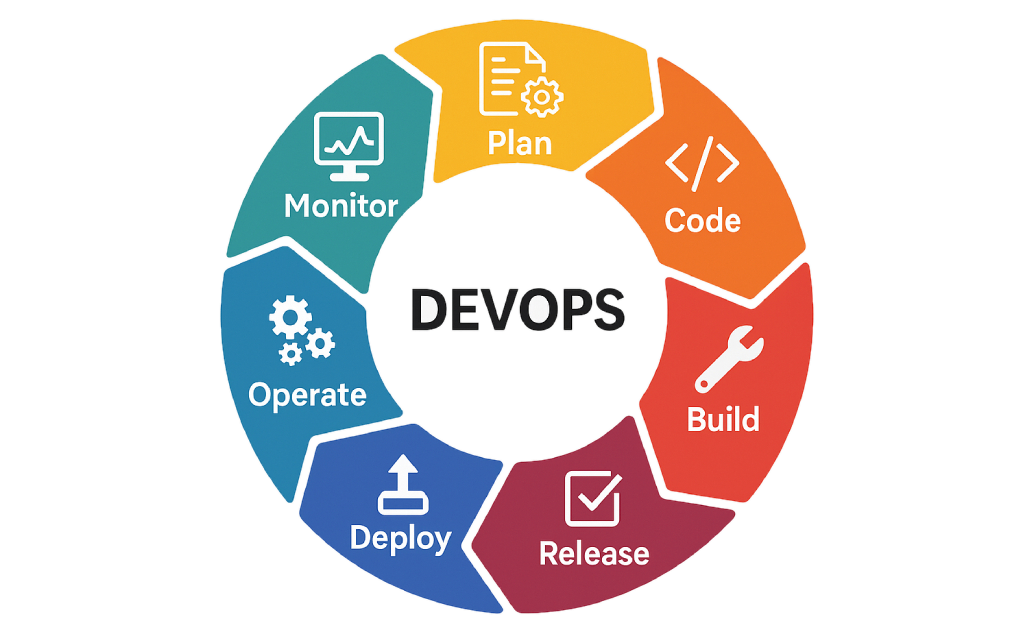In modern software development, speed, collaboration, and continuous improvement are essential. That’s exactly where this culture comes in.
But what exactly does it mean? A role? A toolset? A way of working?
Let’s break it down.
What It Really Means
The term combines Development (Dev) and Operations (Ops). It represents a culture, a set of practices, and various tools aimed at bridging the gap between software creation and IT management.
The goal?
Deliver software faster, more reliably, and with fewer bugs.
In traditional setups, developers would hand off code to operations teams. This approach eliminates that handoff, encouraging continuous cooperation.
More Than Just Tools — It’s a Mindset
Many associate it with Docker, Jenkins, or Kubernetes. Yet, while these tools are part of it, the heart lies in collaboration, automation, and feedback.
Core Practices That Power This Approach
| Practice | Description |
|---|---|
| CI/CD | Automate testing and deployment for faster releases |
| Infrastructure as Code | Manage infrastructure with code (e.g., Terraform) |
| Monitoring & Logging | Real-time tracking of performance and bugs |
| Version Control | Collaborate through Git or similar tools |
| Containerization | Ensure consistent environments using Docker |
| Config Management | Automate setups with Ansible, Chef, Puppet |
Example Tools That Support Modern Workflows
| Category | Examples |
|---|---|
| Versioning | Git, GitHub, Bitbucket |
| CI/CD | Jenkins, CircleCI |
| Containers | Docker, Podman |
| Orchestration | Kubernetes |
| IaC | Terraform |
| Monitoring | Prometheus, Grafana |
| Config | Ansible, Chef |
| Cloud | AWS, Azure, GCP |
Why It Matters
Without this approach:
Releases take longer
Deployment often breaks
Teams operate in silos
With it:
Releases are frequent and smooth
Automation reduces errors
Collaboration improves
Who Benefits Most?
Startups aiming for rapid MVPs
Enterprises with complex systems
Web/mobile developers using CI/CD
Cloud-native projects
Final Thoughts
This isn’t just a buzzword. It’s a shift that empowers teams to build, ship, and maintain better software. Whether you’re a solo dev or part of a big team, adopting these principles helps you work smarter.
Reads also:
External Resources:
